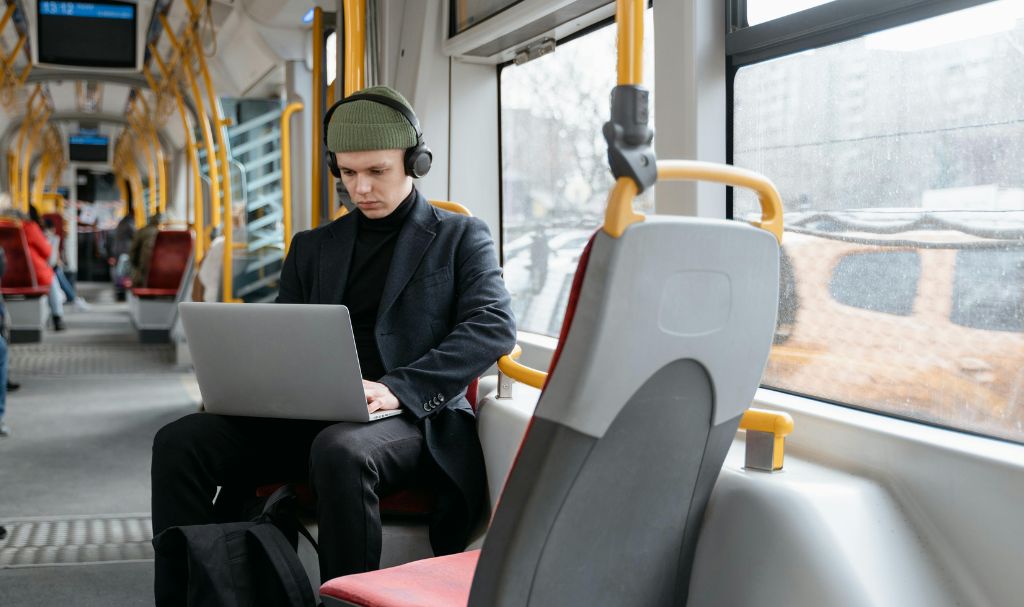Travel is a great way to have new experiences, but traveling also means you need to stay conscious of your safety.
And it’s not just your physical safety you need to worry about. Your devices and your Internet usage are vulnerable too, and that’s why a VPN for travel is a great idea.
Often, when traveling, you’ll find yourself using public Wi-Fi networks. And while that can be convenient for staying connected, it can also be dangerous.
Public Wi-Fi networks can present a big security risk. They are often unsecured and allow potential criminals to access your web traffic.
A VPN can help you avoid this security risk and travel safely. Here are some tips to help you stay safe online, wherever you are.
Countries like China, Russia, Ukraine, or even the United States can have cybersecurity vulnerabilities due to the high level of cybercrime.
On the other hand, European countries such as Bosnia, Albania, or Serbia are also vulnerable when it comes to cloud security.
But that should not stop you from traveling the world, right? I am here to provide you with digital security travel tips, so you can travel to your dream destination without worrying about hacking or data security.
Why Do We Need Digital Security Travel Tips?

Digital security is necessary when it comes to travelling. The reasons? The increased rate of vulnerability to cyberattacks, along with the risks that come with public networks.
As for the travellers, they are more susceptible to major data breaches or using unsecure Wi-Fi when connecting to unknown networks.
Here are the digital security travel tips that you can follow as a traveler.
Dangers of Public Wi-Fi
Public Wi-Fi is so convenient for travelers. Locations like airports, hotels, cafés, and other public spaces often provide Wi-Fi networks you can use to stay connected.
The problem with these Wi-Fi networks is that anyone can access them. Airports, in particular, make good targets for scammers, as thousands of people pass through every day.
Hackers may create networks to tempt travelers with the promise of free Wi-Fi. For example, a man in Australia set up fake free Wi-Fi networks to steal passwords from passengers. This technique is sometimes known as Wi-Fi phishing.
People in the same network can see what you share whenever you use a Wi-Fi network. That’s why you (hopefully) protect your home Wi-Fi network with a password.
Public networks allow basically anyone to sign in, which means hackers may be able to see what you are doing.
Intercepting your Wi-Fi traffic allows them to steal your passwords. Then, they can access your bank, personal documents, or anything else on your device.
A VPN protects you from this by encrypting your Internet traffic. You’re still safe if anyone gets hold of the information you share on the network. They will only see a useless string of encrypted information they can’t read.
Protecting Yourself While Traveling
A VPN is the best way to protect your information when using a public network. However, that’s not the only risk travelers face. Here are some other tips to keep your information safe.
• Look for secure sites.
These days, most websites encrypt information to protect it from hackers. Look for a lock symbol in your browser’s address bar, or see if the website uses the https protocol.
This is part of the site address before the www (remember the S stands for secure). If the site is not secure, you have a significantly higher chance of having your information compromised.
• Don’t log into sites with sensitive information on a public network.
An airport lounge or a local café is not the place to check your bank balance or update your tax information.
Wherever possible, save those sensitive activities when you have a secure network you know is safe.
• Verify network names.
Check carefully to make sure the name of the Wi-Fi network you log into matches.
Scammers will often create a fake network with a name that is almost the same as the legitimate public network.
There may only be one letter different, so check for typos. Make sure the name of the network EXACTLY matches the one provided by the airport, café, or public space.
• Disable auto-connect.
Prevent your device from automatically connecting to the network. That way, you have less of a chance of ending up on a fake network.
• Practice good password management.
Strong, unique passwords are always a good idea and make your information harder to steal. Where possible, use multifactor authentication to stop scammers from cracking your password.
Now, updating passwords is a must! You have to update your passwords, just choose something strong and unique that cannot be traced easily.
You can use a good password management and multi-factor authentication, or MFA, to add that extra security to protect your sensitive information.
In addition to that, I would also suggest you not use any sort of common PIN for the safe or security box in the hotel.
• Be aware of your surroundings.
Not all hacking is done online. When using your phone or laptop in a public space, be aware of anyone watching over your shoulder. You’d be surprised how many passwords are compromised this way.
Staying Safe Around The World
Travel can be an amazing experience. But? It’s important to stay safe. So when you are using a VPN, it can protect your information from being stolen when accessing public Wi-Fi networks. That way, you can stay connected while on the road or in the air.
Follow the digital security traveler tips to protect yourself and make sure you don’t fall victim to scammers while traveling. That way, you’ll come home safely with nothing but great memories.
Read Also:














